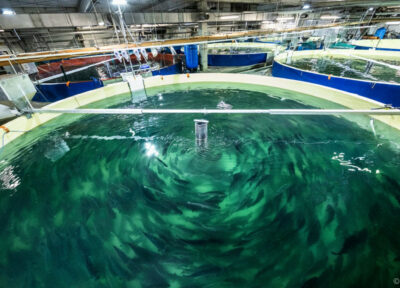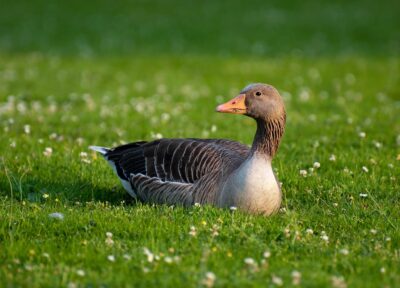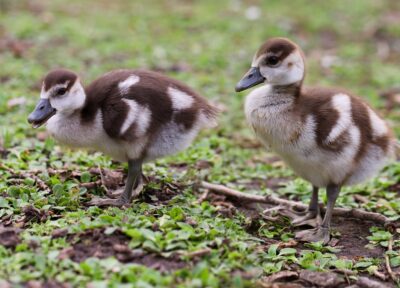by Louis Schweitzer
President of La Fondation Droit Animal, Ethique et Sciences
The text is transcribed from Mr Schweitzer’s final speech.
“To conclude this conference, I would like to briefly discuss four points:
Opinion of the German Ministry of Agriculture
The first point concerns Germany: in 2015, a scientific committee for the Ministry of Agriculture released conclusions which seem quite strong to me. It stated that the current farming system will not be viable any longer and is not sustainable in the long term because it is socially and humanely unacceptable anymore. The first conclusion of the experts is that if our current livestock farming system is no more viable, it has to change. In Europe, this change comes from governments. We heard from Pr Broom the fact that, in the United Sates, change comes from society. It may be slower, but this change, or at least the demand for a change, is happening worldwide. The German scientists made nine recommendations. I will not detail them in full, but these recommendations are the exact application of what was presented today: we need to offer farm animals the possibility to go outdoor, to have enough space, to show their normal behaviours, to have a social life and we must put an end to everything related to mutilations. The Germans added two points that were not discussed today: one is about chemical substances and other medicines that we inject in our animals for other reasons than health, and the other one is about the training of those who are in charge of rearing animals. The German experts, because they are realistic, reckoned that these changes will lead to additional costs that they estimate at 3 to 5 billion euros. These amounts are significant: they represent 13 to 23% of the annual expenditure of livestock farming in Germany. In other words, these experts did not only make a general, timeless statement. Interestingly, they stated what had to be changed, that it will cost money, but that it needs to happen.
Opinion of the French ethics committee for agricultural research
The second point I would like to discuss is the initiative taken by the ethics committee for agricultural research in France, which I had the honour to chair until 2015, and which works for the Cirad, the first organisation of agricultural research specialised in the North-South link, and for INRA, the National Institute of Agricultural Research, the second most significant agricultural institute worldwide. In 2015, after an in-depth study, this ethics committee took into account the issue of animal welfare and made a few recommendations that I will discuss. It has to be underlined that the top executives from these two organisations, INRA on one hand, Cirad on the other hand, are committed to implement the recommendations of the committee. We had the privilege to listen to some researchers from INRA, who gave us outstanding presentations, but these researchers – there are about 70 of them at INRA – are only a minority in organisations which aimed primarily at productivity, and more recently at the environment. What are these recommendations?
1. Animal welfare as end in itself
The first one is to recognise that animal welfare must be one of the goals to reach in farming. It seems very simple, but it is very new. Until now, the aims of livestock farming were to produce quality food in efficient economic conditions; today we say that these must not be the only aims, because animal welfare is one of them too. Let me be clear, there is a link between the efficiency of a farm and animal welfare; this was underlined. There is also a link between animal welfare and the quality of the products made from the animal. But saying that it is a goal in itself goes far beyond. By stating that animal welfare is a goal in itself, an ethical goal, independently from any economic reason, we clearly converge with what the experts from the German Ministry of Agriculture stated: livestock farming is condemned if it is not modified. It is not viable in our societies. And this is important, not only for the animal: while it is first and foremost a concern for animal welfare, it is also, as underlined by the ethics committee, essential for the well-being and the life of those who take care of the animals, whether it is the farmer himself/herself, or his/her employees and of all those who work with animals. It is a not a desirable life to work with unhappy beings.
What is it about, precisely? First, it is about developing further animal welfare research at INRA and this development has two objectives. In the first instance, knowing what animals feel, as it was discussed today. How do we assess their welfare? We saw that, on this issue, there have been much scientific progress, but much still has to be done: the animals show compelling behaviours but they do not speak. A second topic of research is as important: how do we assess, how do we evaluate from outside the welfare of an animal? Pr Broom referred to this: it is clear that a vet, or an inspector, who is visiting a farm, needs to assess the reality of the welfare of the animals in a reasonable amount of time. An effort in research has to be made on this topic, and it involves, for the country in which CIRAD intervenes, the integration of animal husbandry practices, human-animal relationships that are very different from European practices and which cannot be reduced to them.
2. Integration of animal welfare
A second objective is to say that animal welfare is not only a goal in itself, it also has to be part of all things related to livestock farming, which means that research teams at INRA must not only be strong, but they need to be included in all animal husbandry research fields. In other words, there is not one sector dealing with animal welfare on one hand, and sectors dealing with topics commonly known as important such as economy, fattening, reducing the amount and cost of all inputs on the other hand. Productivity and welfare must constantly be included everywhere.
3. Vigilance on genetic selection
Another important recommendation deals with genetics; Pr Broom also referred to it. Research institutes work a lot on genetics and the traditional objective is to make animal breeds which maximise production. The position of the ethics committee is: “Animal selection, however it is done, must not result in the reduction of the welfare of the animals or in decreasing their ability to reach a welfare state.” This point is important: animals that are structurally denied welfare are one thing, and we have created cattle and avian breeds which are structurally in a bad state of welfare. But we can also imagine a genetic selection which creates vegetative-animals, if I may say, which means that they are unable to experience welfare; this is ethically just as condemnable.
4. INRA as a prescriber
Another remark: INRA, top executives as well as researchers, engineers, supervisors, are prescribers constantly liaising with the professional world of livestock farmers. In France, it is well-known that INRA has been a prescriber of agricultural models. Organisations and their researchers are invited to meet the professionals, to maintain a dialogue and also to offer training. In other words, it is necessary to ensure that animal welfare know-how is spread and to do it actively: we should recognise that this implies that researchers and staff at INRA are trained on how to go and meet them, which will not always be easy. We know that there will be positive welcome, but meeting people and explaining things which does not always bring – or seen as not always bringing – an immediate benefit demands an additional effort.
5. Exemplary behaviour and animal welfare charter
Another recommendation concerns INRA, which itself rears and experiments on animals. At INRA, there are experimental farms. Of course, it is not possible to defend something and not respect it: INRA’s commitment is not only to respect all the national and European norms on animal husbandry, but also to create an animal welfare charter which will apply to itself, and to have a willingness to be exemplary as regards animal welfare. In other words, it as about saying: “See how I do and how I would like you to do”.
6. Implications at European level
Finally, one of the recommendations of the ethics committee is that INRA must participate actively in every European programme related to animal welfare.
Other recommendations are stated in this opinion of the ethics committee. It is 25 pages long and can be found on INRA’s and Cirad’s websites. I of course invite you to read it carefully, because it shows a major turning point on the approaches of our national research institute towards animal welfare, and this has to be underlined in our conference.
National strategy for animal welfare
The third point of my intervention will be brief: I want to underline that this is the first time that France officially announces a strategy for animal welfare. I thank Mr Dehaumont for his presentation which exempts me from discussing this strategy in full details as he has done it perfectly. I would simply make one comment: I am not sure that one of the predecessors of Mr Dehaumont, director general of Food for the Ministry of Agriculture, would have come to speak in a conference on animal welfare five or six years ago, and I am not sure that he would have been applauded. I wanted to underline this. This strategy definitely does not include many quantitative goals, that there are still things to do, we can still progress on some aspects; but the important thing is that it exists, that it has been published, and that Mr Dehaumont came to present it to us. One aspect of this strategy, which will serve as a transition to my fourth point and which is a strength of this conference, is that it has enabled dialogue. France explains in this strategy that it will be proactive, positive in the effort to put in place European norms on animal welfare. We have to acknowledge that when Pr Jean-Claude Nouët and I went to Brussels a few years ago to discuss possible progress for European regulations on animal welfare, France was not seen as the most active country in supporting more stringent and tougher norms. I now have the hope that this opinion on France is no longer present, that in maintaining a relation with Germany, and that France and Germany speak together in favour of effective Europeans regulations enabling progress for animal welfare.
International trade agreements/treaties
Now my fourth and final point is precisely on the international level, which is central for three reasons. The first one is of course that animals live on the entire surface of the earth and that there is no logic in saying that one is interested in animals in only some place, some country. The second one is that animals, living or dead, travel around the world, and this trade is the source of a competitive pressure, bringing with it threats that the worst practices, those only oriented towards an immediate financial profit, block any chance of progress in other countries: it is not totally by chance that Switzerland, whose system is very protected, is a driving force in animal protection. The third issue on the international level is that there is less possibility of expression of public opinion and political capacity. As a result, the balance is more on the side of the economy and less on the side of social demand. This clearly means that WTO’s actions and efforts to link free-trade to the respect of animal welfare norms must be supported. This means that in international negotiations between the European Union (EU) and Asia on one hand, and the USA on the other hand, the demand for animal welfare must be brought by negotiators in places where actions occur. I say it emphatically: it is the European Parliament, where I think opinion can be vigorously expressed, which must approve those trade agreements, also with the support of the EU. There are fields where the EU has obviously been a progress factor. Animal welfare, I say it again, is one of the fields where the EU has been a drive of progress.
***
Now I would like to conclude this conference with two final remarks. The first one is to come back on its international dimension. As in our 2012 conference, we have enabled scientists and experts from all over the world to intervene. I must say I am delighted that science in this field is indeed international. It is also important to give the floor to specialists from all over the world because, at the same time it enables us to discover better practices and to note that bad practices spread. At an international level, it is a struggle between the progress taken from others’ best practices and bad practices which are contagious. My conviction is that animal welfare progress will be international or will not be. This creates for us both possibilities of action and challenges.
My second remark is more national. In France, and also elsewhere, investigations show that, in their vast majority, men and women are in favour of animal welfare. We can multiply opinion polls, support is always massively predominant; but the reality, in the political debate, is that this vast majority is very badly organised in front of a minority which is much more organised and thus often much more effective. It is then essential, for those who are active supporters of animal welfare, to coordinate, to organise common actions, and to seek allies, because if we do not act this way, we can be right and yet lose. Our objective is indeed to find allies. On 24th November 2015, I had the pleasure to participate in a conference on animal welfare organised by the National veterinary board, chaired by vet Dr Michel Baussier. One could think that these two conferences only 10 days apart are competing. I note that the two conferences are also two successes and that, without the alliance with veterinarians, our actions are limited in France. The director general for Food also underlined that he was a vet: he is therefore interested in our subject. If we want to turn our ideas and opinions into concrete actions, it is very important that we succeed in establishing this alliance; convergence of actions will give us efficacy.
These are the messages I wanted to share in my conclusion. They are not as attractive as some that you heard today, but I hope that they will enable us in a future conference – maybe we will hold one on wild animals as we have not talked about them much. Progress is always slower than we would want or hope; but at last I see an ongoing dynamic. No matter the subject, this future conference will also help us assess how much the progress which we are hoping for is accelerating.




